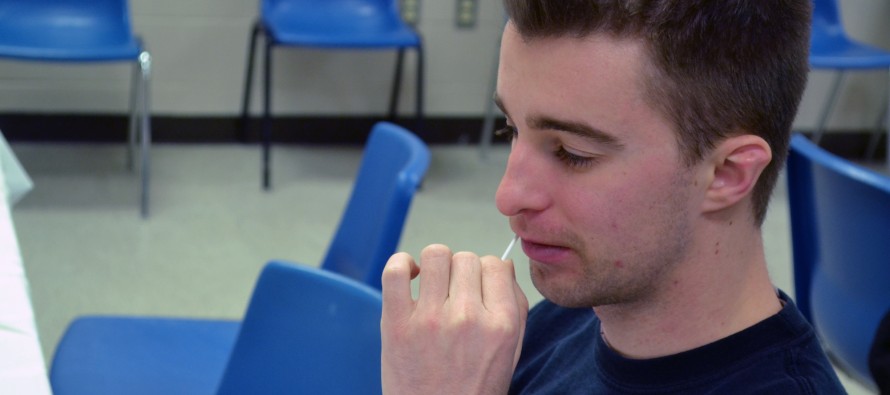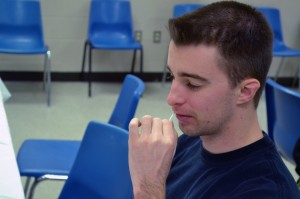St. Clair Swabbing for Stem Cells


Nick Gyemi, a St. Clair College student swabs his mouth for the Get Swabbed Campaign, January 29, 2013.
(Converged Citizen/Kenneth Bullock)
By Kenneth Bullock
More than 300 St.Clair College students are willing to donate their stem cells to save lives.
The Get Swabbed event was held in St. Clair’s cafeteria and the new HealthPlex lobby Jan. 30. Donors were asked to swab each corner of their mouth with the cotton swabs. Afterwards, the swabs were placed in an envelope to be sent to OneMatch Stem Cell and Marrow Network in Ottawa.
The swabs will be tested for bone marrow and stem cell compatibility with those suffering from blood cancer. The donors’ information will then be added to OneMatch’s donor database and may be used to help a blood cancer patient
Melba Bedard, secretary of the Katelyn Bedard Bone Marrow Association says KBBMA works with OneMatch to make this event possible around Canada, and assists people in becoming a bone marrow or stem cell donor. The Get Swabbed Campaign has been held annually at St. Clair since 2011.
“There are over 900 people in Canada who are ill with a blood cancer,” says Bedard.
OneMatch’s database already holds more than 329,000 donor’s data and Bedard said donations from the event will still not be enough to cure a fraction of the 900 blood cancer patients still waiting treatment.
“Research shows that more stem cell and bone marrow matches are found in young males,” said Dan Wilson, board member of St. Clair and the KBBMA.
Wilson says the cells found in young males are finer than the cells found in females. He also said there is a need for more diverse ethnic groups to donate. According to the KBBMA, 72 percent of donors are Caucasian. There is a higher success rate of matches if cells used belong to the ethnic group of the patient. Patients who receive cells from their own ethnic group have been found to create more matches. With the majority of donors being Caucasian, it becomes more difficult to cure all those suffering.
With there being over 329,000 donors and still over 900 waiting to be matched, Wilson said there will be slim chances that matches will occur from this event. “Sometimes it’s like finding a needle in a haystack.”


